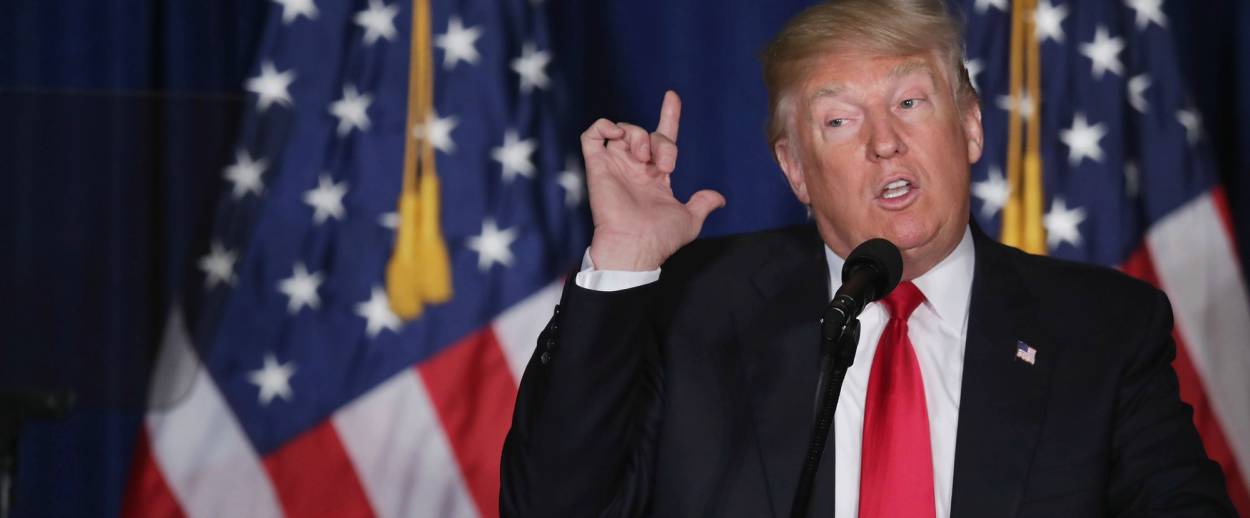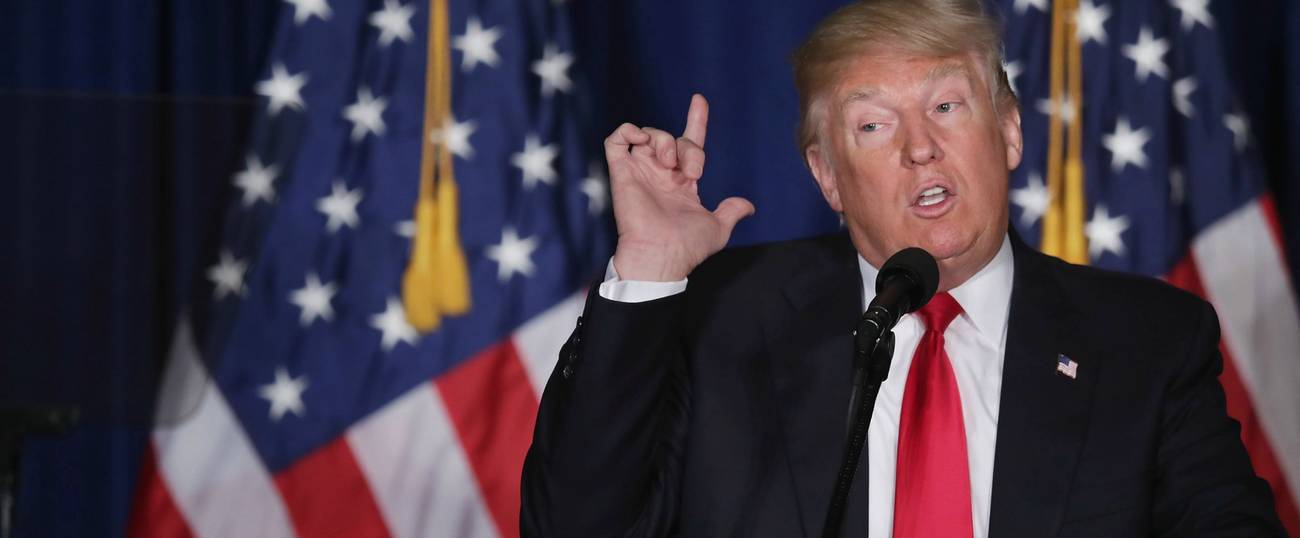Trump, Under Control, Delivers Foreign Policy Speech
The day after winning five primaries, the Republican frontrunner pivoted into the role of his party’s presumptive presidential nominee





The past few days of Donald Trump’s presidential bid have been marked by speculation about exactly which version of Republican frontrunner the country is going to get over the next seven months, especially after his dominant, five-state primaries sweep on April 26.
On that day, Politico reported that Trump had been rebuffing advisers who are urging him to act more “presidential.” But whether—and how—Trump might reinvent himself is a question of some urgency for his eventual general election opponent because the businessman has displayed a remarkable ability to abandon his earlier convictions at seemingly no apparent cost. (His personality has been forceful enough to batter through contradictions of both policy and mere being.)
During a major speech on today, Trump gave early hints of how he is likely to rebalance and hone his personality and campaign’s stances, once the general election hits. Trump’s April 27 foreign policy address, which was hosted by the Center for The National Interest in Washington, D.C., wasn’t completely vapid. There were some real ideas in there: As Brookings Institution scholar Thom Wright put it, Trump was “repackaging isolationism in realist wrapping paper.”
Trump said he wants to rebuild the U.S.’s alliances, while also reframing America’s alliance system as a protection racket. “Our allies are not paying their fair share,” Trump moaned. “They look at the U.S. as weak and forgiving and see no obligation to honor their agreements with us.” He continues to think in hazy moral absolutes: “We need to be clear-sighted about the groups that will never be anything other than enemies,” he said in reference to some unspecified collection of frenemies in the Middle East.
He also had some kind words for Israel, calling it “a force for justice and peace,” but he also hit on the kind of nativist and isolationist tropes shared among policy thinkers and constituencies that are traditionally unfriendly to both the Jewish state and Jews in general. “Under a Trump administration, no American will feel that their needs come second to the citizens of a foreign country,” Trump said, as if such a thing were ever seriously in question.
Trump’s foreign policy also entails an ideological hostility towards principles that have often animated American Jewish foreign policy activism. He inveighed against U.S. foreign policy being used to “spread universal values that not everyone shares or wants.” One wonders whether such Trumpian anti-universalism squares with, say, the Save Darfur movement, the mid-2000s effort in much of the mainstream U.S. Jewish community organized in favor of a strong U.S. response to atrocities in distant western Sudan.
But the speech operated at a level far above and beyond whatever actual substance it may have contained. His real accomplishment was reading off of a prepared text even more competently than during his AIPAC speech last month. Today’s speech contained the bullying machismo and fearsome canniness we’ve come to expect of Trump, married to something that, to the untrained era, sounded suspiciously like an actual policy address. It was a speech where he could discuss the pitfalls of Chinese membership in the World Trade Organization, while also barking at U.S. allies about how relations with the U.S. are “no longer one-way. It’s now two-way!”
And forget what the speech sounded like. Before he even started talking, Trump received a plush introduction from Zalmay Khalilzad, the U.S.’s ambassador to the United Nations during George W. Bush’s second term, and still one of the most respected voices in the realist wing of Republican foreign policy. “We are delighted Mr. Trump is here,” the only Muslim cabinet-level official in U.S. history said (after clarifying that the Center for National Interest had invited the other presidential candidates to address them).
Trump’s speech channeled his trademark aggression and edge into something oddly controlled. It’s a preview of Trump’s next pivot—and of the general election to come.
Related: Trump Watch [Tablet series]
Armin Rosen is a staff writer for Tablet Magazine.